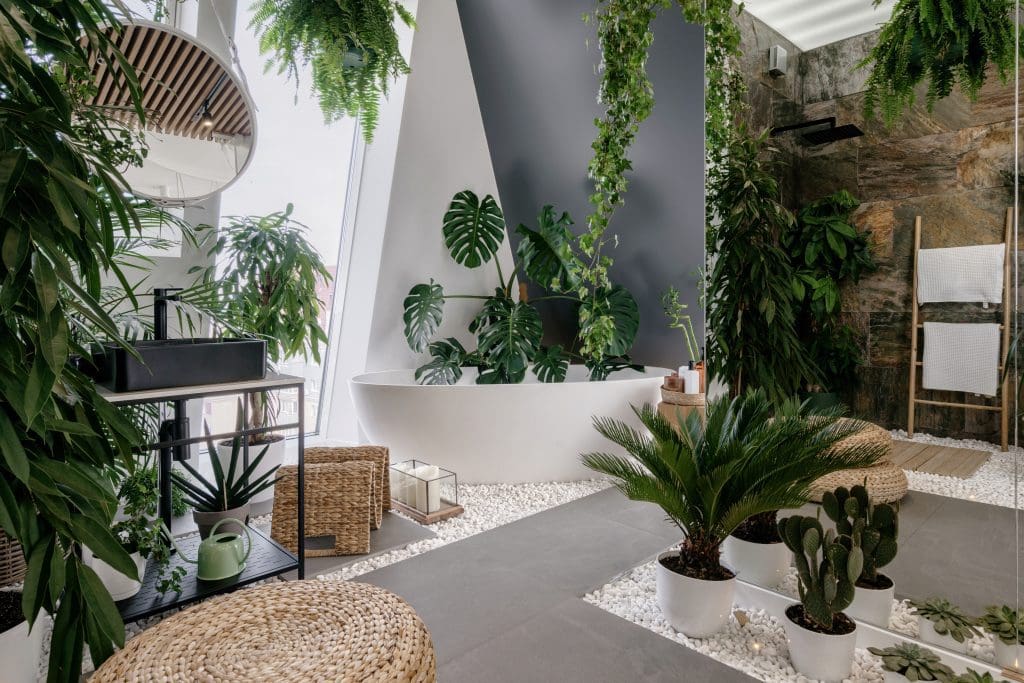No products in your basket yet
What Are The Dangers Of Overwatering Houseplants
Overwatering Houseplants
To understand the negative effects of overwatering houseplants, we must first look at the basics facts.
Without water, life on Earth as we know it would not exist. It is truly fundamental. However, evolution through natural selection has created a plethora of wonderful plant species. These species have adapted themselves to every environment on Earth, with the exception of the Polar ice caps, and a few deserts where rain is seldom seen.
To understand this is fundamental! As a species we have managed to manipulate thousands of species of plants to benefit ourselves; these include cereals, brassica’s, fruit trees! In all honesty the list is almost endless. We have also brought plants into our houses as decorations and to help aid our wellbeing.
There are real positive benefits in having plants in our lives. But we need to be aware of the many negative issues the plants we keep in our homes have! The problem is the plants have not had time to evolve into plants that would naturally frequent a house somewhere in the suburbs of many cities here in the UK, or for that matter anywhere else on planet Earth.
This is a bold statement; “95% of all houseplants purchased are killed by kindness!” We are either given a plant by somebody, or we go out and choose one that we think is pretty or beautiful. We give scant regard as to where we are going to put it in the house, let alone how to look after it.
What is killing my House Plants?
Who or what is the secret killer? Do we need to bring in the murder detectives for an in-depth investigation. Well, the answer is no!
We are the culprits, you, and me. The murder method is water. Usually too much, sometimes not enough. In most cases I have seen it when I have been visiting friends or relatives, and being presented with a sad looking plant. The cause is overwatering! When challenged as to why this has happened, people say to me that the plant was looking sad, so they thought they would give it a water to perk it up.

Why does overwatering kill a plant?
Well, that water was the fatal blow. Murder complete! Why?
The reason is that the plant literally drowned. Plants take in and use almost as much Oxygen through their root systems as they do through their leaf structures. Every living cell on Earth with few exceptions use Oxygen along with Glucose to produce energy and Carbon dioxide. This reaction powers the cells and thus growth.
If you put your nose and mouth under water for a few seconds its not long before an involuntary action see’s you remove your face from the water and take a deep breath. Well, what is happening under the compost is not that dissimilar to the aforementioned action except the plant is trapped and cannot escape. Result DROWNING!
With the cells starting to collapse in the root system the plant takes on a droopy look because it cannot take up water. Bazaar, but true.
What can we do to prevent over watering?
The answer is surprising simple and we at Tropical plants UK use a simple motto. Less is better than more! As compost dries out so the spaces in the compost are vacated by water and replaced by air. When you water the opposite occurs. So put simply, water sparingly. If your favourite plant is looking limp, first pick it up and gauge the weight. Water is heavy, compost when dry is light in weight. If it feels light add a little water, may be only a third of a coffee cup of water and leave to a 13cm pot. The plant within a few minutes can be seen to be changing shape and within an hour it will be back to its old self. If the pot is very heavy, then remedial action is necessary to help the plant recover.
The best thing to do is slip the pot off and place the compost ball on a newspaper. Do not use a glossy magazine. Within an hour the newspaper should have drawn the excess water out of the compost. Return the plant to its plastic pot and place the plant in a low light area where there is little air movement. To help the plant spray the leaves several times a day to prevent the leaves from being burnt by desiccation. If the plant has not been too badly damaged within a week, new white roots should be seen growing in the compost when the compost ball is examined.
Remember that a good watering is the kiss of death, despite what you may have thought originally or been told by others. Think Oxygen and then you will have a happy plant. It really is very simple. Plants are not complicated; it is us that makes it complicated. Take a quick look at our care guide here.
On a related article I will discuss fertilizer and how it works within the compost and how it affects the way plants grow.
Happy houseplants
Written by MIKE OPPERMAN
